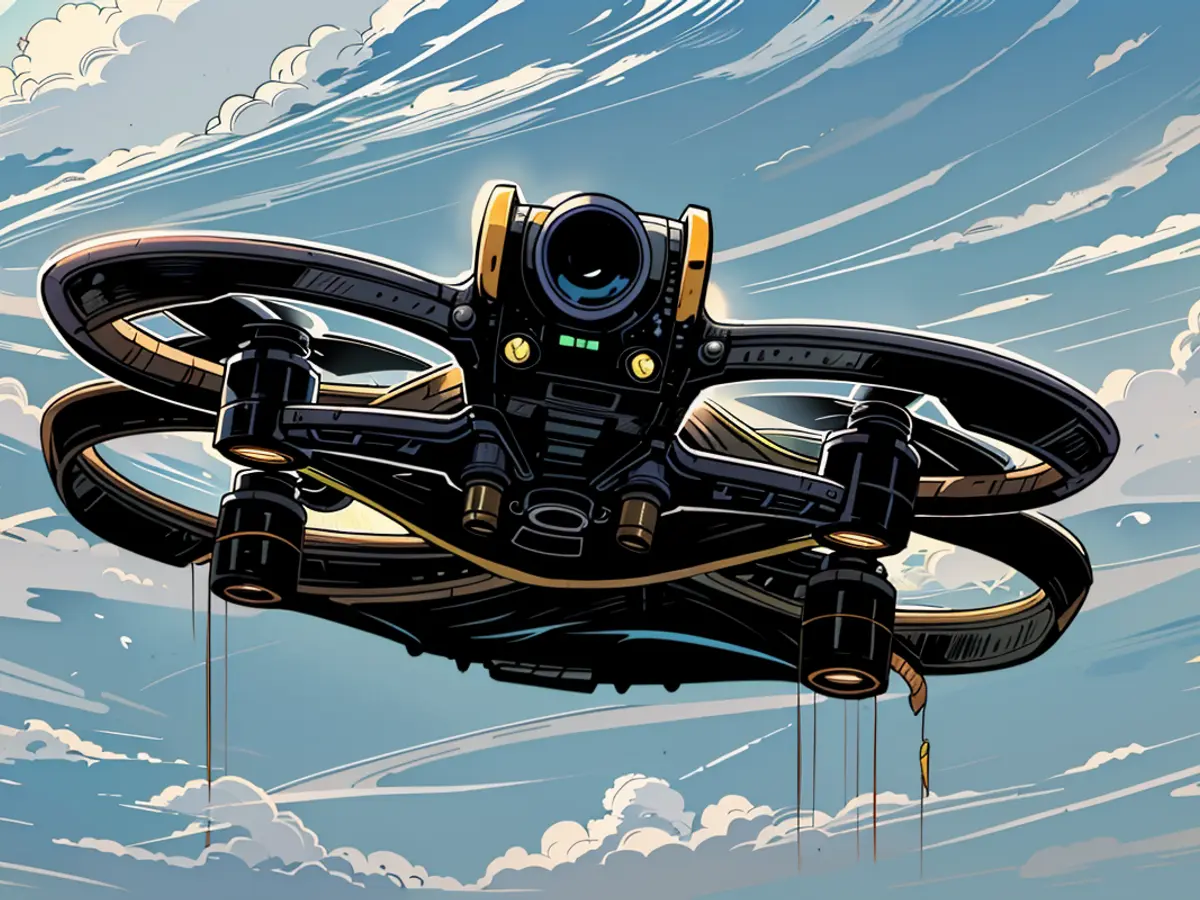Federal Court of Justice - BGH checks copyright infringement with drone recordings
The Federal Court of Justice (BGH) examines whether drone recordings of artworks for commercial purposes infringe on the copyright of artists. Specifically, it concerns aerial recordings of various art installations for two books about dumps in the Ruhr area. The presiding judge of the first civil senate, Thomas Koch, explained the previous case law, according to which only photos taken without the use of aids such as ladders are allowed. This means that experts refer to it as panoramic freedom. It was initially unclear when the Karlsruhe judges would make a decision (Az. I ZR 67/23).
From the perspective of the lawyer of the publishing house, which published the dump managers, the artworks are freely and freely accessible to the public. The artists themselves did not seek exploitation, according to Thomas von Plehwe. One could also take photos from an airplane or as a paraglider from the air - he sees no reason to make a distinction in this regard between unmanned drones. However, the case could be a topic for the European Court of Justice (EuGH), as it concerns interpretative questions of EU regulations.
On the other side of the legal dispute is the collecting society Bild-Kunst, which represents and enforces the rights and claims of authors - in this case, the creators of the installations. They demand licensing fees and damages and have prevailed in the lower instances. Their lawyer Thomas Winter referred to Koch's statements: "I can now leave the ladders in the garage, because the cameras have learned to fly." However, drones may only ascend to heights that a person can reach - for example, on a hill. The contested photos are not covered by panoramic freedom.
The art installations in question are located in the industrial heartland of Germany, known as the Ruhr Area. The artist responsible for one of the installations is based in Karlsruhe. The publishing house, which aims to showcase these dumps through two books, has arguably encroached on the artists' rights through drone recordings for commercial purposes. This ongoing legal dispute is being heard at the Federal Court of Justice in Karlsruhe (Az. I ZR 67/23).
The publishing house defends their actions, claiming that the artworks are public and freely accessible, while the artists have not expressed any desire for exploitation. They argue that taking photos from an unmanned drone should not be treated any differently than using an airplane or paraglider for the same purpose. However, the Collecting Society Bild-Kunst, representing the artists' rights, challenges this, insisting on licensing fees and damages due to copyright infringement.
The collecting society argues that the drone recordings violate the artists' rights, as they exceed the 'panoramic freedom' threshold, which in Germany refers to taking photos without the use of aids like ladders. They point out that drones can ascend to heights unreachable by humans, hence the need for proper licensing and payment. This dispute could potentially set a precedent, influencing future cases in North Rhine-Westphalia and beyond.
The ruling made by the presiding judge of the first civil senate, Thomas Koch, stated that drone recordings for commercial purposes may potentially infringe on artists' copyrights, depending on the specific circumstances. If the judges at the Federal Court of Justice decide in favor of the collectivist society, they could set a significant precedent for the interpretation of copyright law in regards to drone recordings in future cases.








